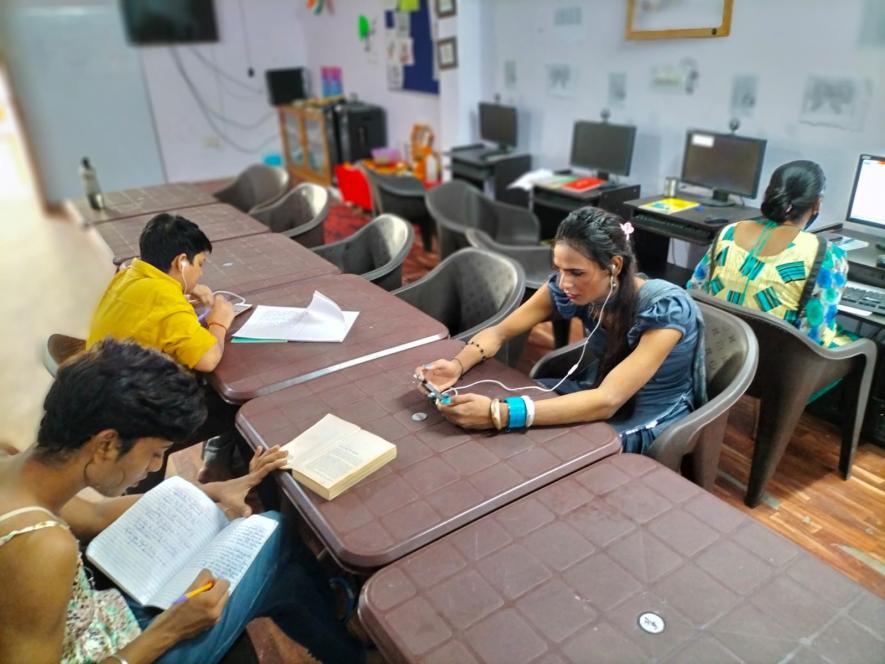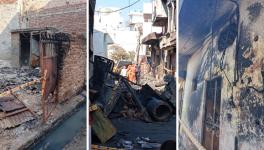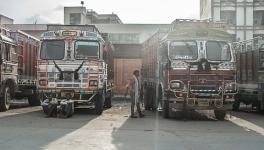Garima Grehs in Dire Straits: Transgender Communities Struggle to Survive Without Government Funding

Image for representational purpose. Credit: Ministry of Social Justice and Empowerment
For many transgender individuals, the very spaces that are meant to provide safety and refuge - their own homes and private spaces - can be hotbeds of violence, assault, neglect, and discrimination. In such dire circumstances, transgender shelter homes become nothing short of a lifeline, as essential as schools, hospitals, and courts.
The Transgender Act of 2020 marked a crucial turning point in addressing this issue, paving the way for a pilot scheme in April 2021. The SMILE (Support for Marginalised Individuals for Livelihood & Enterprise) scheme contracted 12 Garima Grehs (shelter homes) in nine states.
It was launched by the Ministry of Social Justice and Empowerment with the intent of providing shelter homes which equip transgender persons with the capacity, skill sets, shelter, food, medical care, and various necessities but, more importantly, create a physical space which is a secure environment for the residents for protection against atrocities.
The scheme was launched on December 15, 2021, bringing a glimmer of hope to the transgender community, with the government allocating Rs 365 crore over five years.
But as the pilot scheme approached its expiry date in March 2022, the future looked bleak for those who depended on it for their safety and well-being. The Central government failed to extend the contracts and provide information on the same, leaving residents in limbo with no word on the fate of the Graima Greh.
Even the promised funding, which is to be received in a 40-40-20 ratio, has not been fully disbursed, with the last set of 20% funding still pending. And to make matters worse, the guidelines for Garima Greh have significant loopholes, such as the lack of provision for basic necessities like electricity.
The situation has become so dire that the Delhi Garima Greh has been forced to rely on donations, personal contributions, and even take loans to keep things afloat. Residents have been forced to move out multiple times since November 2022, with the imminent threat of eviction. They face an uncertain future with limited employment opportunities and safe housing options. Most employees have also left, and the ones currently working struggle to make ends meet.
It's alarming that in Delhi, which houses millions of people, there is only one government-supported shelter home for transgender individuals. Despite that, the Central government has failed to ensure the necessary support and raises concerns about the misuse of funds for other purposes or the prevalence of corrupt practices. Other Garima Grehs across the country have had similar experiences, with a few shut down in a short time.
The violence and discrimination that transgender persons face in India daily are a brutal reminder of how far we are from achieving true equality and justice for all. They are often denied access to basic services, such as education, healthcare, and employment, because of their gender identity. The lack of acceptance and understanding from society excludes them from social and economic opportunities and puts them at risk of physical and sexual violence.
Crimes against trans persons often go undocumented as they face challenges in obtaining legal recognition and lack the necessary documentation, identity proofs and transgender certificates, which are needed to invoke rights which adds to their vulnerability and further perpetuates the discrimination they face.
They are often forced to engage in sex work or beg to survive as they face discrimination in the formal job sector. The lack of economic opportunities further marginalises and stigmatises transgender persons.
It is important to note that begging is not a choice but a symptom of systemic discrimination and inequality. Addressing the root causes of this discrimination and marginalisation is crucial to providing transgender persons with access to education, employment, and healthcare, which can help them attain financial stability and independence.
Establishing trans-friendly, gender-affirming healthcare facilities are necessary which cater to unique healthcare needs and provide specialised services is the need of the hour, as healthcare providers lack the knowledge and training to provide sensitive and appropriate care.
The need for government-aided welfare schemes and rehabilitation measures becomes essential because trans persons are not only excluded from social and economic opportunities but also because they are seen as outcasts within their communities; thus, the context shifts as opposed to other historically marginalised groups.
Adopted communities such as those provided by shelter homes are important for trans persons because they provide a sense of belonging and support that may not be available within their biological families or broader society.
Many transpersons experience rejection and discrimination, leading to feelings of isolation and loneliness. They offer emotional and social support, financial assistance, and access to resources such as healthcare and legal assistance. They can also serve as a source of empowerment and activism, providing a platform for advocacy and challenging the systemic discrimination and violence faced by transpersons. Overall, adopted communities are essential for the well-being and empowerment of transpersons.
Such instances also further the need for affirmative action and to secure Horizontal Reservations for transpersons in education and government jobs. The transgender category cannot be homogenised or accommodated under the OBC (other backward classes) category as the multiplicity of identity affects the extent of marginalisation, discrimination and access to opportunity for dalit, bahujan and adivasi (DBA) transpersons and is crucial to take into account for upward mobility.
The central government has a moral obligation to ensure that the transgender community feels safe and secure in their homes and society. We cannot afford to turn a blind eye to this issue.
The author is a social worker, activist and a Women In Government Fellow.
Get the latest reports & analysis with people's perspective on Protests, movements & deep analytical videos, discussions of the current affairs in your Telegram app. Subscribe to NewsClick's Telegram channel & get Real-Time updates on stories, as they get published on our website.
























